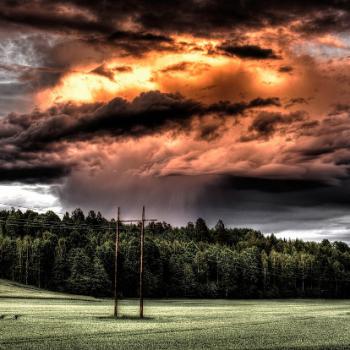
What makes a tradition “authentic”? What proves its legitimacy?
The reality is that traditions are not pure, older doesn’t necessarily mean better, and lineage is meaningless. The red flags that you are dealing with a tradition which is misrepresenting itself are as follows:
- Any tradition which makes claims which can be historically disproven and/or goes against historical record
- Any tradition which tries to misrepresent the source(s) of their tradition or outright lies about its origins
- Any tradition which confuses personal revelation with historical fact and/or group doctrine
- Any tradition which supports bigotry or hatred against any one particular group of people and/or tries to cherry pick history and/or data in order to support said hatred in their lineage
Healthy skepticism is the key when it comes to researching traditions and trying to figure out what one(s) to invest time in. Part of it is figuring out where we have the most agreement and feel the most “at home” but another part of it is making sure that the people who are maintaining the tradition are honest and straightforward about it.
Traditions thrive when they evolve with the times, allow for the opportunity for mistakes to be made and both correct and learn from them, and when its members have both a healthy attitude and relationship not just with each other but with the tradition itself. Too often people look for the wrong things in traditions, thinking that they’re guarantees of the validity and quality of the tradition. Not so. Let’s take a look at some of the presumptions people sometimes make that often prove to be fruitless:
- Length does not make strength, and age is irrelevant. How old a tradition is ultimately doesn’t matter, and new ones are just as valid–if not more so–than ones which have existed longer. Trying to aim for “the older the better” is no way to make sure that the tradition you’re looking into is valid and/or good quality.
- Unbroken lineages don’t make better ones. Traditions need to evolve with the times and culture, and what was started x amount of years ago in some other part of the world won’t be regarded or practiced the same way. The key is to make good decisions based on understanding the original spirit of the practice. This is especially relevant in reconstructionist pagan and polytheistic traditions.
- Unchanging lineages aren’t better; they’re just potentially buggy and probably very afraid of change. Like with the above example, traditions need to evolve with the times, the culture, and the changing needs and direction of its people. Traditions which are not okay with evaluating practices in light of that are probably ones that not only fear change but are entirely too rigid to be considered to be reasonable. While it’s true that some practices are considered to be the core of any tradition, faith, etc it’s also good to be critical and be able to question.
- Traditions which don’t let you ask questions are bad traditions. Never, ever take any tradition’s confidence in itself to be forever right and never questioned as a sign that it knows better or more than you or any other group. Don’t blindly accept ANY authority; only trust ones which are good with answering questions from new seekers and are unafraid to examine and discuss why things are done.
I have blogged in the past about what you should look for in organizations and groups, as well as what to be warned away from–and similar rules apply here, too. Be thoughtful, stay curious, and always look out for yourself. Never, ever allow your personal ethics and moral values become compromised in order to belong to any group, organization, or tradition.
















